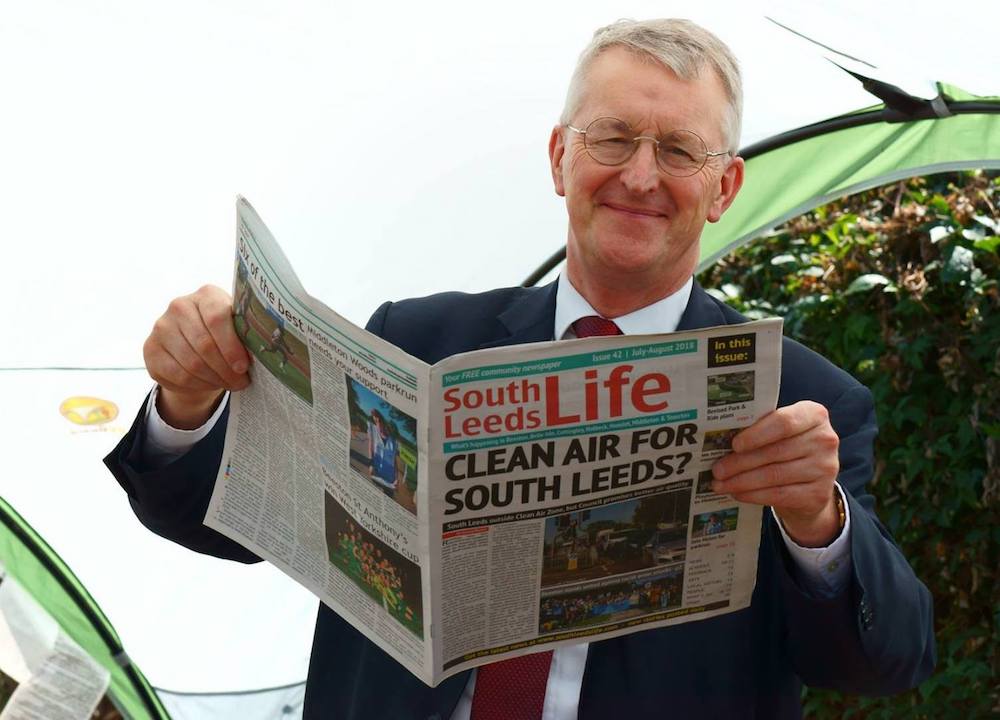
A couple of weeks ago, I attended the climate emergency rally on the steps of Leeds Town Hall. There were hundreds of school students there from across our city. They had decided to come together to speak as the next generation about the huge risks of dangerous climate change.
Ever since the global economic crash, governments have paid less attention to how we must reduce CO2 emissions than they should have, and in the intervening decade, the bad news is that global emissions have continued to rise.
According to the Met Office the level of climate-warming carbon dioxide (CO2) in the atmosphere is forecast to reach a near-record amount in 2019. This is because of the continued burning of fossil fuels and the destruction of forests (which soak up CO2). Action to do something about this has to increase significantly to limit warming to the 1.5C rise above pre-industrial levels that scientists advise is what we need to do.
The good news is that UK emissions in 2017 were 43% below the level they were in 1990. How have we done this? By burning a lot less coal, producing more renewable energy from wind turbines and using energy more efficiently. While we still have a long way to go to reduce emissions from transport and heating our homes, the UK’s experience shows that it is possible to make real progress.
The thing about climate change is that without dramatic progress in all countries we will all be affected by the rise in temperatures and the impact this will have on weather patterns. The past four years have been the hottest on record.
This is why international agreements between nations are so important to hold us to account for the commitments we make and for the progress we demonstrate. And that progress is actually made up of lots of decisions taken by businesses, communities and families.
Changing over to LED light bulbs is a good example. When the old incandescent light bulbs were banned in 2009 there was a lot of criticism, but one of the consequences of doing this was to force the pace of technological change. As a result, the latest generation of LED light bulbs are just as good but save us money because they last longer and use less electricity – so producing less CO2.
The move towards electric and hybrid cars is another. The Government has pledged that half of all new car sales will be hybrid or electric by 2030, and by 2040 the aim is to end the sale of “conventional” petrol and diesel cars and vans altogether. Other countries are doing the same thing, and as a result more and more low and zero emission models are being developed by the car manufacturers.
What these two examples show is how change can happen, but our city, our country and our world need to do much more. And that was the message from the enthusiastic and committed young people I met on that day. Some criticised them for missing school but I applaud them for showing their commitment to our future, and anyone listening to their impassioned speeches on the steps of the Town Hall could not have failed to be moved and impressed.
Leeds City Council has now agreed to declare a climate emergency which is a welcome expression of commitment. But what will really make a difference is each one of us committing to do something that will ensure that we can pass on to the next generation a safe, secure and temperate world.


